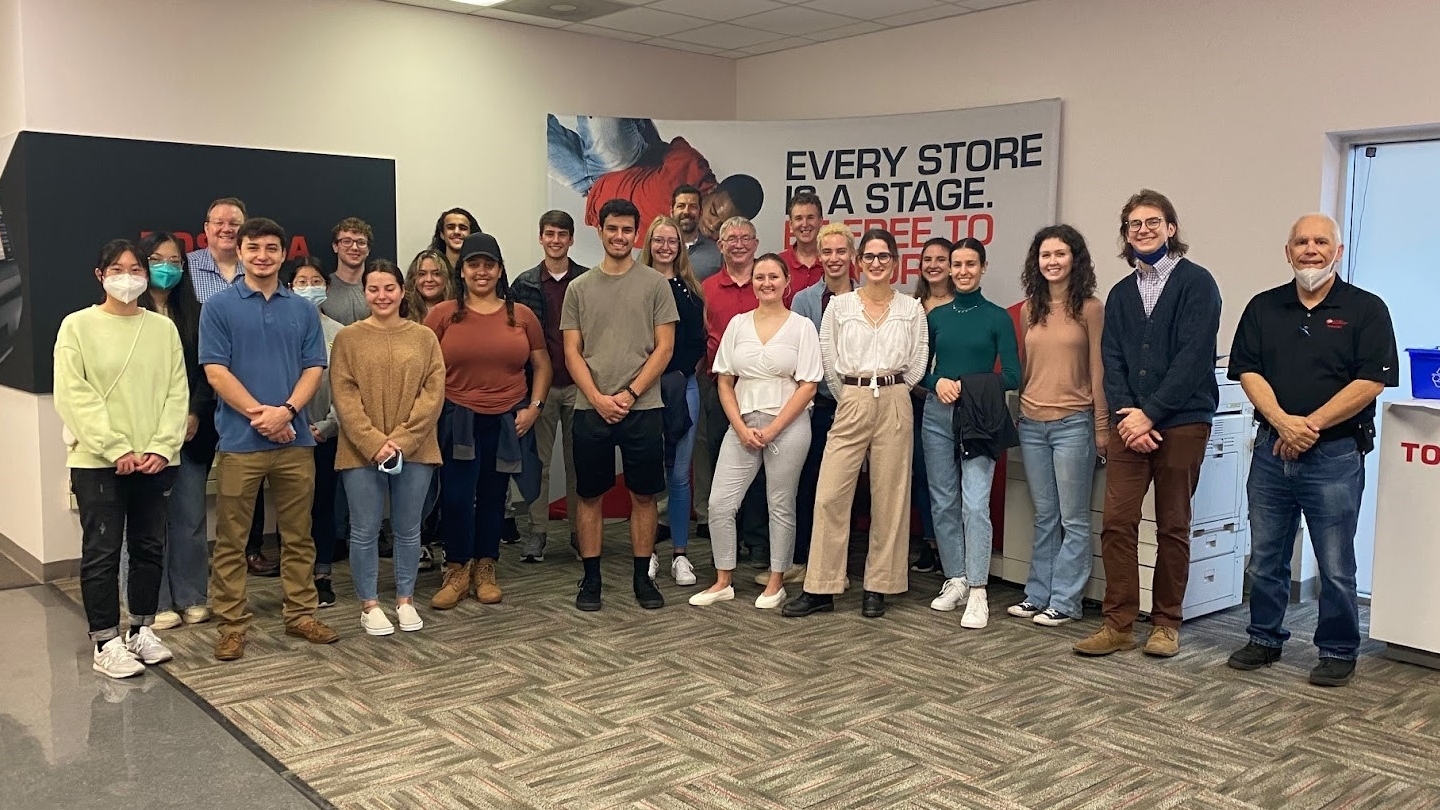Poole Class of 2021 Spotlight: Supply Chain Resource Cooperative Practicum

As COVID-19 spread across the world, countless companies and organizations found themselves having to significantly reduce or halt travel to help reduce the spread of the virus.
So, as many other companies have in the past, the American Red Cross reached out to the Poole College of Management’s Supply Chain Resource Cooperative (SCRC) to see if its faculty and students could assist with a current business challenge. The American Red Cross has partnered with the college’s SCRC for five years. As part of the program, students apply their classroom knowledge to solve real-world problems for industry, which allows the students to come away with an experiential understanding of supply chain management.
Essentially the project is a mini-internship, which helps the students learn and prepare for their entry into the business world.
“The Supply Chain practicum projects are a fantastic opportunity for the students to gain real-world experience by working directly with a company to solve a business problem.
As a team, the students meet weekly with the company, as well as with their faculty advisor, to work on their project. The students learn about the supply chain issue, as well as develop other skills such as project management, business communication, presentation skills, problem-solving and teamwork,” explains Tracy Freeman, Poole College senior lecturer in operations and supply chain management. “Essentially the project is a mini-internship, which helps the students learn and prepare for their entry into the business world.”
As part of their undergraduate supply chain management practicum course, Poole College seniors Mark Oakley, Mael Mitchela Lumas, Charles Moorman and Mack Brooks were challenged to help the American Red Cross review their travel policy and make recommendations for changes based on leading practices and other considerations brought forth by the COVID-19 pandemic.
“We conducted about 15 interviews trying to find leading practices to provide information to the American Red Cross, as well as continued research on duty of care and other aspects related to travel,” explains Oakley. “It has been such a pleasure working with the team at American Red Cross because they were willing to help us at every turn and whenever we struggled, they provided insight to fix the problem.”
It has been such a pleasure working with the team at American Red Cross because they were willing to help us at every turn and whenever we struggled, they provided insight to fix the problem.
As part of their research, the team interviewed various other SCRC companies such as MetLife and Cheniere Energy to find out what they were doing regarding travel.
“We typically spoke with travel managers or other people with related roles to help us gain insight into how other companies had been dealing with travel during COVID. This helped us gain great unique perspectives and spark some ideas that we utilized in our final report,” adds Brooks. “It was also very encouraging how nearly all of the people we spoke with were happy and excited to help us and were interested in our project. In addition, we set up weekly meetings with one of the companies we spoke with, Areka, and our contact there served as a great resource to help us further develop our ideas and gain additional insight.”
It’s this connection between industry and academia that sets Poole College apart from many other business schools across the country.
“This experience has prepared me greatly for life after graduation,” says Brooks, who has accepted a full-time position as a business analyst with transportation logistics firm, Synchrogistics, after graduation. “Through this project, we have learned a lot about how to be more professional in meetings and emails when dealing with our clients. We have learned how to be more thorough and detailed in our work, as well as being more confident in presenting our project. This helped me get a real sense of how things are ‘behind-the-scenes’ within these companies and gave me an expectation of what to expect starting my new job. I am very glad I took this course, as it really has been a great way to gain this type of relevant job and industry experience that I did not have before.”
Oakley agrees and adds working with an organization that is making a real difference in the lives of Americans throughout the pandemic made it even more special.
“It feels good knowing that something I have worked on can impact people, especially in a non-profit organization,” Oakley says. “The focus of the American Red Cross is to provide help to people across the U.S. and by spending less on travel during a difficult time allows for better care of people in need.”
This post was originally published in Poole College of Management News.
- Categories:


